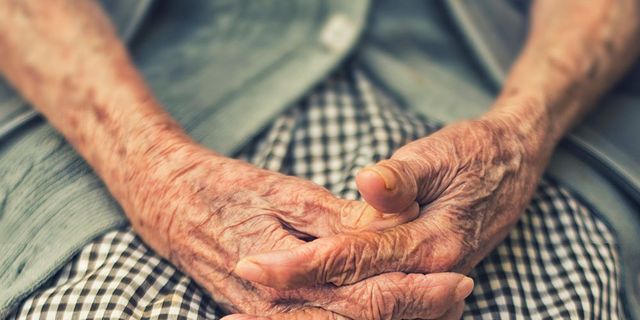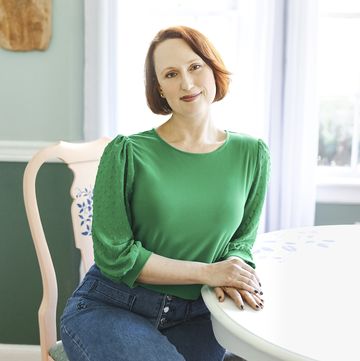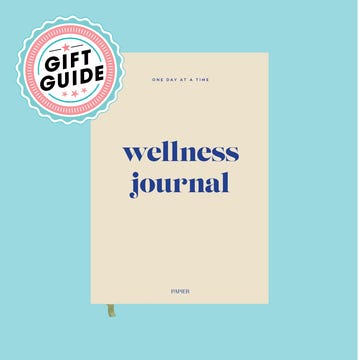Andy is a 53-year-old PR and communications consultant in the Los Angeles area. In 2014, his now 85-year-old mother, who asked to remain anonymous, moved into a retirement facility for just 2 months before returning home. This is their story.
My mom was aware that four things were becoming more problematic in recent years: social isolation, making or preparing her own meals, home upkeep and repair, and cleaning the house. She's lived in her house for 50 years—it's the house my sister and I grew up in—but she needs assistance.
(In as little as 30 days, you can be a whole lot slimmer, way more energetic, and so much healthier just by following the simple, groundbreaking plan in The Thyroid Cure!)
She always seemed open to these conversations about how life was changing. Still, there were moments of defensiveness, moments of not being pleased about the possibility of moving. Other times it would seem like she sounded relieved thinking about living in a facility where she wouldn't have to make her own meals and she would have social options available if she wanted them. My sister and I would hear Mom express her frustration and concerns, and we would remind her that a move to a retirement facility was possible. We always respected her perspective and decisions, and we weren't going to tell her what to do, but we reiterated that she was concerned about these changes and so were we. We reflected back to her the reasons why she was considering such a move. (Find out what it's really like to be a parent's caregiver.)
She agreed to take tours of various facilities. We probably saw about half a dozen. Every step along the way, my sister and I told her we were not pressuring her but that we wanted to see what her choices were. We had conversations with the staff about a month-to-month agreement that would allow her to move back home if it wasn't working out.
MORE: 10 Things Every Caregiver Should Know
She decided she would try moving into one of these facilities. I tried to use analogies to help her settle in, telling her to pretend she was living in a hotel with her restaurant right down the hall. She talked about selling the house, but my sister and I didn't want to rush into that.
Mom: It was my decision to go to a facility. I knew of a few people who were really pleased in facilities like that one, and I thought, "Why not?" I knew I wouldn't have the physical stuff to worry about, like laundry and keeping the house up. I thought it might work for me.
Andy: Mom lived there for 2 months before she felt it wasn't a good match for her and she moved home. She hadn't really taken advantage of the social activities they offered, and she wasn't happy.
Mom: It just didn't work for me. It's not like I was actually confined, but there was just one room that was my home. There wasn't a whole lot going on activity-wise, and I never really found anybody that I had much in common with. I found it a little depressing. I love to read, so that was taking up a lot of my time there.
Andy: Mom, my sister, and I met with a social worker to discuss why Mom wasn't happy. Together, the social worker, my sister, and I reiterated the reasons she hadn't been happy at home and had wanted to move in the first place, but she just wanted to get back home. It was really helpful to have the social worker involved, a third party who saw things outside of our myopic perspective. Many times the social worker agreed with my sister and me, and it was helpful to hear we weren't alone in what we were seeing and hearing from Mom. We were very clear we didn't agree with her, but that we would not keep her from making the decision that she wanted to make. The most important thing for us was to honor what Mom wants.
MORE: This Is What It's Like To Care For A Parent With Alzheimer's
We encourage her to use her cane at all times. She's had a couple of falls, and that is definitely one concern of the many we have for her living on her own. Ultimately, we think it's still important for our parents to make the decisions that will make them happiest in the years they have left. (My dad lives in the Seattle area.)
She's been back home now for over a year. She seems to appreciate her house in a different way, she likes being in the home environment that she's been used to for 50 years.
Mom: It has become more difficult than I had anticipated to be back at home. When I was at the facility, I was better physically able to walk around, and I'm really not now. I know it's my hip—it needs to be replaced, but I feel really cautious about wanting to have surgery. I'm in a lot of pain, pretty much 24 hours a day. Someone comes in to help with cleaning and shopping, but I don't have anyone here caring for me on a daily basis. I don't know how much longer I can go on like this, but I like being in my own home. I don't want to think about where I might have to live in the future.
Andy: I try to check in regularly. When she mentions a change in her health or a complaint with the house, I ask, "Are you rethinking your living situation?" When she says no, I reply, "That's fine, I just wanted to check." It's like holding up a mirror to help her see her situation. I want her to know I'm listening and supporting her.
My sister and I would absolutely prefer her to be in a facility. I've had to try to listen more, offering her opportunities and choices, much like I try to do as a parent of a 12-year-old. It's a delicate balance of respecting Mom's independence and also being aware of the best care match for her. In a retirement home, she would have immediate assistance for her needs.
In the worst moments, when I hear how unhappy she is, I just want to say, "Mom, this is not good for you right now. You just need to move." I would never actually say that. I have had to learn that I can't always resolve the situation, and I have to just move on.
Sarah Klein is a Boston-based writer, editor, and personal trainer currently with LIVESTRONG.com, and previously of Health.com, Prevention magazine, and The Huffington Post. She’s the graduate of the Arthur L. Carter Journalism Institute at New York University.













